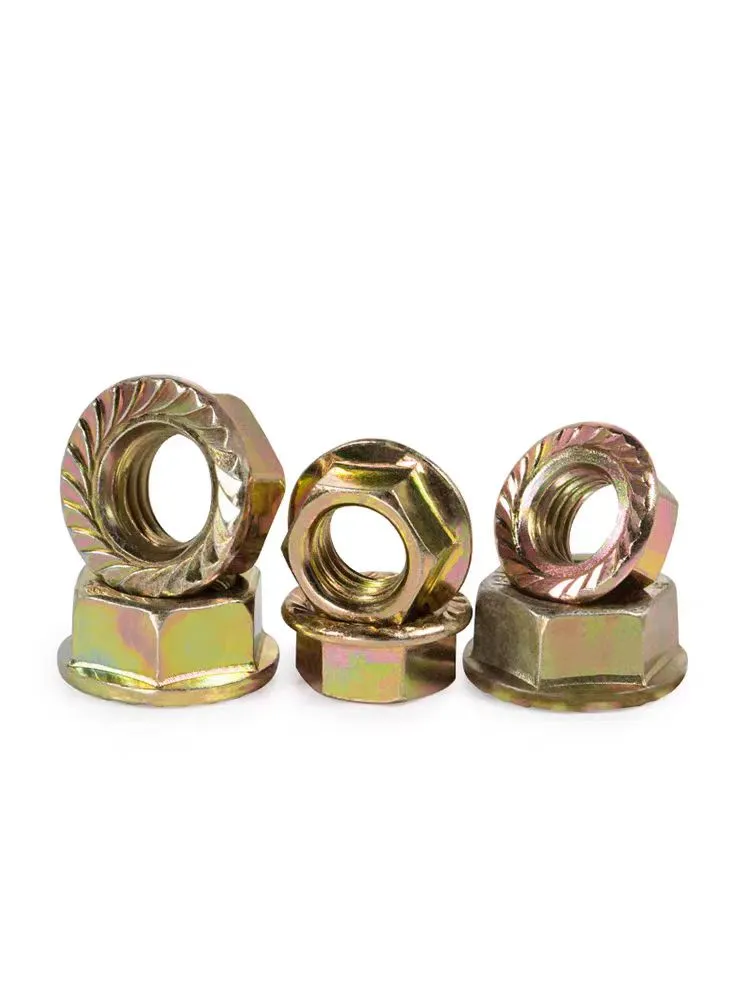

self tapping screw material
Dec . 16, 2024 08:20 Back to list
self tapping screw material
Understanding Self-Tapping Screw Materials
Self-tapping screws are a vital component in various construction and manufacturing applications, known for their ability to create a mating thread in materials without the need for a pre-drilled hole. The material used in the production of self-tapping screws plays a crucial role in their performance, durability, and suitability for specific applications. This article explores the different materials employed in the manufacturing of self-tapping screws, analyzing their properties, benefits, and best use cases.
Common Materials Used in Self-Tapping Screws
1. Steel Steel is the most common material for self-tapping screws, primarily due to its excellent strength and durability. Depending on the desired properties, screws can be made from various types of steel, including carbon steel and alloy steel. Carbon steel screws are economical and strong, while alloy steel screws can offer enhanced properties, such as increased tensile strength and resistance to wear and deformation. Steel screws are often coated with zinc or other materials to provide corrosion resistance, making them suitable for outdoor applications.
2. Stainless Steel For applications where corrosion resistance is paramount, stainless steel self-tapping screws are often the preferred choice. Stainless steel contains chromium, which forms a passive oxide layer that protects the metal from rust and other forms of corrosion. These screws are ideal for marine environments and other settings exposed to moisture, such as kitchens and bathrooms. However, while stainless steel screws are resistant to rust, they are generally more expensive than their carbon steel counterparts.
3. Brass Brass self-tapping screws are less commonly used but still valuable in specific applications. The main advantage of brass is its excellent corrosion resistance and aesthetic appeal, making it a popular choice in decorative applications. Brass screws are commonly used in electrical applications due to their non-magnetic properties and ability to conduct electricity effectively. Though they are not as strong as their steel counterparts, their resistance to tarnishing adds to their attractiveness in visible installations.
4. Plastic In applications that require non-metallic fasteners, plastic self-tapping screws serve as a lightweight and corrosion-resistant alternative. They are often used in electronic devices, where metal screws could cause interference with electrical signals. Plastic screws are excellent for lightweight materials and can be colored or formed in various shapes to meet specific design needs. However, the mechanical strength of plastic screws is typically lower than that of metal screws, limiting their use to less demanding applications.
self tapping screw material

Factors Influencing Material Selection
When selecting the appropriate material for self-tapping screws, several factors must be considered
- Application Environment The presence of moisture, chemicals, or extreme temperatures can significantly influence the longevity of the screw. For corrosive environments, stainless steel or plastic are often better options. - Load Requirements The loads and stresses that the screws will bear must be considered. Steel screws can handle higher loads, while plastic screws may be suited for lighter applications.
- Aesthetic Considerations In visible applications, the appearance of the screw may also be a deciding factor, making finishes and material types important to choose wisely.
- Cost Budget constraints often guide the selection of materials. While stainless steel offers superior performance, it comes at a higher cost compared to carbon steel or plastic.
Conclusion
In summary, the material of self-tapping screws plays a crucial role in their performance across various applications. Understanding the properties of steel, stainless steel, brass, and plastic helps manufacturers and builders choose the right screw for their specific needs. By considering the factors of application environment, load requirements, aesthetics, and cost, one can optimize the use of self-tapping screws for both functionality and durability.
Latest news
-
High-Strength Hot Dip Galvanized Bolts - Hebei Longze | Corrosion Resistance, Customization
NewsJul.30,2025
-
Hot Dip Galvanized Bolts-Hebei Longze|Corrosion Resistance&High Strength
NewsJul.30,2025
-
High-Strength Hot-Dip Galvanized Bolts-Hebei Longze|Corrosion Resistance&High Strength
NewsJul.30,2025
-
Hot Dip Galvanized Bolts-Hebei Longze|Corrosion Resistance&High Strength
NewsJul.30,2025
-
Hot Dip Galvanized Bolts - Hebei Longze | Corrosion Resistance, High Strength
NewsJul.30,2025
-
High-Strength Hot Dip Galvanized Bolts-Hebei Longze|Corrosion Resistance, Grade 8.8
NewsJul.30,2025

